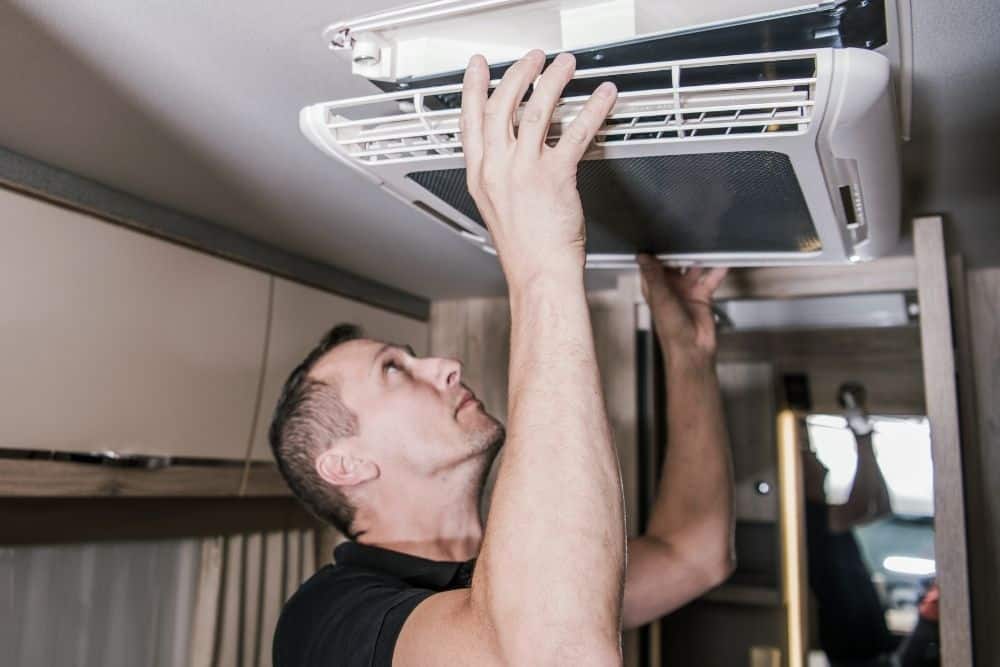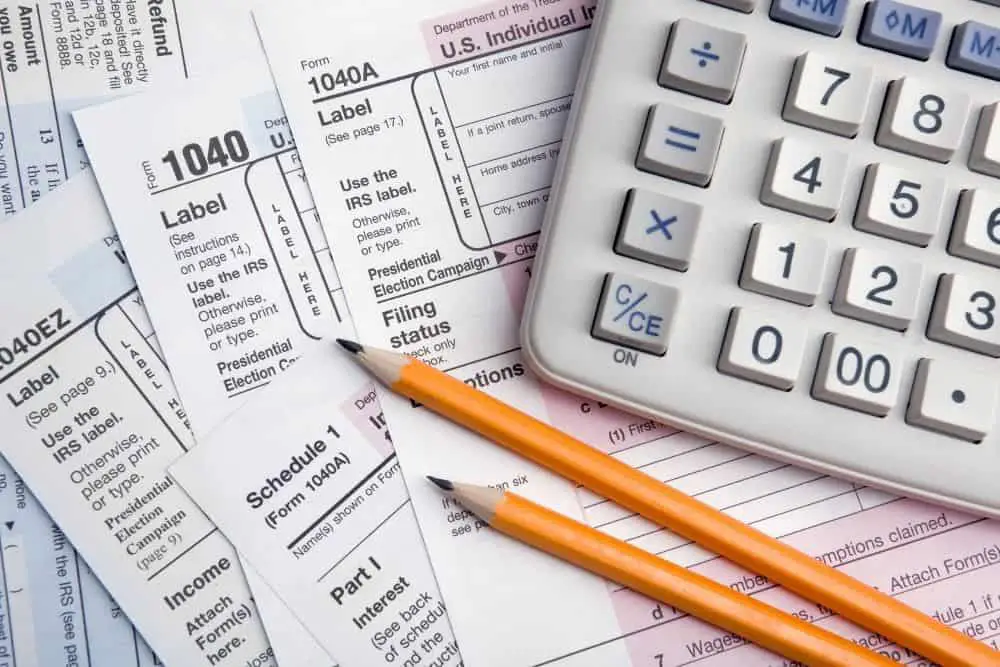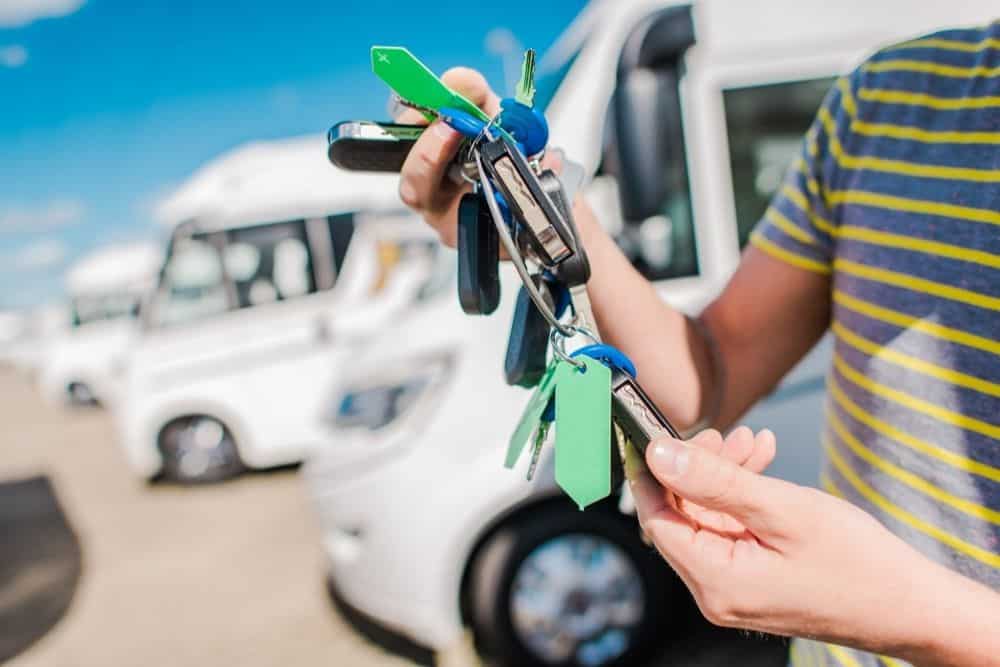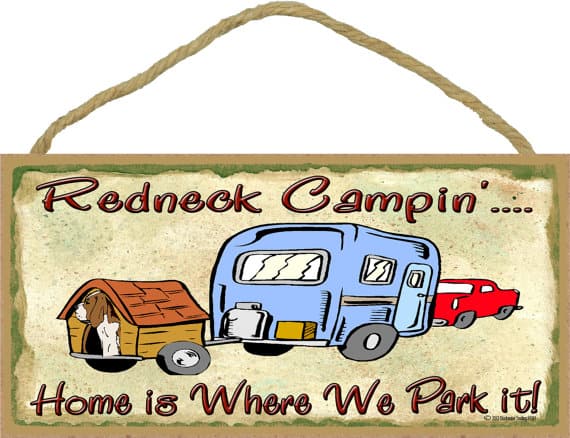Some people have the misconception that taking over payments on an RV is illegal. The truth of the matter is, it can be done legally if you follow certain steps. In this post, we will go over the process and outline everything you need to know about taking over the payments on an RV to ensure your success.
You’ve always dreamed of owning your own camper van. One that you can pick up and go, with just a few hours notice (or sometimes even less!). You have found an RV for sale on the internet- now what?
In order to take over any payments on an RV, you will need to show your credit history to the company from whichever RV is being sold; if they approve it, then it’s time to talk about who’s going to be paying whom! So as long as there isn’t anything seriously wrong in either buyer’s or seller’s financials, then this shouldn’t pose too much trouble– speaking with both parties should quickly clarify everything.
Have you been dreaming of getting your own RV? Maybe it’s time to stop daydreaming and start making that dream come true. In order for the transfer from the seller to the buyer to happen as smoothly as possible, make sure you do everything by the book. Keep reading for a helpful guide on how exactly want need to take over payments on an RV legally!
How to Take Over Payments on an RV Legally
What if someone gave you the opportunity to take over their payments? Well, there are many factors to consider before you take over payments on an RV.
Not all loan payments can be transferred to someone else, so make sure you find one that has an assumable payment.
Assumable Lease
Taking over someone else’s RV lease can be a great option. It’s a great cheaper option than buying an expensive one on your own! So, if you’re in search of some good news about this topic, just keep reading, and I’ll show you how to find somebody with an assumable RV lease that is willing to share it with others like yourself who might not be able to afford to purchase their own.
Not all RV lease payments can be transferred to someone else. The best way to determine if you are eligible is by talking with a lender.
Locating A Seller
When you’re in the market for a new RV, there are many different ways to go about finding what you want. One option is checking used ads on Craigslist or through your local newspaper; however, if that isn’t doing much good, then it might be time to head online and find an assumable leased vehicle from one of several sites geared towards people interested in buying and selling RVs.
While it may be uncommon, you can always contact your local dealership to see if they are selling any RV’s that way.
Identify Qualifications
Your leasing company will need to see your financial info, but if you can show them a good history of making on-time payments then that should be less important.
It never hurts to be prepared. If you are not sure if your credit score is good enough, the best way to find out is by checking with the seller about qualifications and speak up early on in negotiations so that they can see what else might work for you instead of waiting until later when it’s too late!
It’s important to be prepared, and you should definitely ask the leasing company if they have a process for this as well.

Inspect The RV
If you’re in the market for an RV, just make sure to keep it real. Although they may be used vehicles, there are still a lot of hidden issues that need to be taken into account before purchase.
It’s a good idea to have the RV inspected by a professional before you buy it.
If the RV is used, make sure to have an inspection done by someone who knows what they’re doing and can give some insight into any potential issues that might arise with this type of vehicle in particular! Be sure to do get this done before you take over the lease from the seller.
You’re about to take over payments for a vehicle, so you’ll want to be sure and think this through. It’s not worth the headache later on if something goes wrong with your payment plan.
How To Assume An RV Loan
If you’re buying an RV for someone with a loan instead of leasing, another thing to consider is how the monthly payments will be handled.
This is a good alternative to assume leases since you can keep your RV permanently. All that’s required for the process are having a great credit score and financial history.
Finding an assumable loan sounds simple enough, but there are some important things to consider before you start looking. So the first thing is that your credit score and financial background will be heavily scrutinized.
The first step in finding the right RV is to find someone who has an assumable loan for an RV, but there are other factors that must be taken into account when searching.
Find an Assumable Loan
When you are looking to buy an RV, there is always the risk that not all loans will be assumable. This can happen because of different circumstances for each seller and their lenders at the time of sale. In this case, it may take a little more research on your end to find what works best!
You can start by looking for RV loans that are assumable. You will also want to consider contacting the seller of a camper and asking them about their loan situation before making a purchase decision!
Do You Qualify?
You might be able to get a loan when you need one, even if your situation isn’t perfect.
The good news is that it’s easier to qualify for someone else’s loan than it is your own, but you still have to make sure the other person qualifies first!
This means that even if they can’t get their loans themselves, we’re not out of luck.
You can count on the lender wanting to see your financial history before making a decision.
This is because the lender does not want to take on a loan for someone who might default. However, this also means they will be sure that you are as creditworthy and qualified to pay off their loans in full! They do this because the seller will no longer be responsible for the loan if you default.
Should You Take Over A Lease Or A Loan?
Taking over a lease or loan can be an easy and straightforward way to purchase the home you want. Now that we have gone over how let’s consider some of its pros and cons, so you know if it’s right for your situation.
Think of the reason that you want to assume a loan. It is important to know what your end goal or purpose for borrowing money from someone else before making any decisions on how much and who will be lending it out!
Are you doing this because you can’t afford that shiny new RV? Or do you just like the idea of having your own camper with no lease on it?
Whatever your reasons are, there’s a lot you need to consider before signing up for this option.
Find a More Affordable Option
Taking over a lease is arguably the cheapest way to buy an RV. The payments may be lower, and there are rarely any down payments required, so do your own research on what would suit best with your budget and lifestyle before settling into anything.
Since there are so many different kinds of lease prices out there, it’s important to compare the ones you find. I know that can be tough if it’s hard enough looking at one, but sometimes those savings will really improve your bottom line. If there are some sellers who might offer more competitive rates than others, keep an eye out for them as well!
A lease will save you money on your monthly payments, but a loan is the way to go if you’re looking for ownership. A loan is going to cost more than leasing.
You are going to be making a payment on our RV with the goal of owning it afterward, so your monthly payments will likely be higher. However, you’ll pay less in total over time than if you were getting your own loan!

Make the Commitment
Both of these options offer a lot to think about. You can enjoy the RV temporarily before returning it. For some people, this can be both good and bad because they enjoy the small use without having to commit long-term.
On the same note, taking over someone’s debt means that you’ll get to keep their RV permanently, which is again either considered as being great or terrible depending on if you like the RV or not.
Previous Ownership
You want to be sure you’re ready for a secondhand RV. That means not only should you take over their payments, but also any damages done by the previous owners!
When you are taking over a lease, it’s important to know that any wear and tear the tenant may have caused will be your responsibility. This is why at the end of every contract, there should always be an inspection before signing off on anything.
When buying an RV, it’s important to check everything out before you agree to make any payments on the vehicle. Especially if there is limited mileage after taking over as well, this should be something that can also be discussed with your lease company about too!
Terms & Contract
The contract is not to be taken lightly. You must read over it carefully, checking each detail and understanding what you’re signing up for before putting your signature on the dotted line.
It’s a good idea to make sure that you know the mileage on your lease contract before signing it.
Take a look at all of the deals available and compare them to see which one is best. Don’t just take whatever you find, but do your homework first!
Can I Sell My RV If I Still Owe On It?
The answer is a resounding yes. If you are sure that the money from selling your RV will cover all of the outstanding loan, then you can. If it doesn’t cover the loan, then you will be left having to pay off the balance yourself before the bank releases the title.
What most people don’t know is that when you buy an RV, the lien-holder has a claim on it until all of your payments are completed. This might be one of the reasons why not many buyers opt to purchase RVs without ownership and title clearances.
You can still sell your RV when you are unable to pay off the outstanding loan by following these simple steps:
-You may have to get creative if you are planning a private sale. First, estimate the make and model of your RV, then figure in aspects such as mileage and condition when listing it’s value on an ad. Subtract what you owe from its current market worth for accurate pricing information!
-When you advertise your RV for sale, be sure to let potential buyers know the lien amount outstanding on it.
-The buyer will be able to purchase the RV, and you can use that money to pay off the loan and get them a clean title.
-Or alternatively, the buyer may pay directly to your lender and secure their RV title in order for you not to incur any additional late fees.
If you’re short on your loan repayment amount after the sale of your RV, there are a few options for bridging it. You may request a bank-financed bridge loan to cover the difference from your lender.
How Long Can an RV Be Financed?
As the purchase of an RV can be quite expensive, it is not uncommon for these loans to extend over a decade or longer.
A person’s loan terms may depend on how much money they are borrowing and other factors such as down payments, credit scores, etc.
How long can you enjoy your RV before paying it off? The answer varies depending on the size of your vehicle and how much money is needed for financing. Smaller loans with a $10,000 to $25,000 price range may have terms as short as two or three years, while larger loans above that amount will usually be repaid over a period between five and twenty-two years. However, some lenders are lenient about what they allow in repayment periods; banks and credit unions sometimes extend these limits up to 20-years when dealing with more expensive travel trailers like fifth wheels or motorhomes worth approximately 50K dollars or more!
You want to choose a loan that will be the most comfortable for you now and later. The shorter your term, the less interest over time!
Shortening your terms will get you closer to equity in your RV sooner.

Do You Have To Pay Taxes On An RV?
Do you have to pay taxes on an RV? Yes, but it’s not the same as paying for your house. Sales Tax and Property Taxes are two different types of taxes. The main advantage of a sales tax deduction is that unlike a mortgage interest deduction, you may be able to deduct the purchase price of your RV even if you paid for it in cash.
You need to be wise when it comes to calculating how much you’ll pay on taxes for your motorhome storage, and it starts with knowing the state rules so that you can utilize them properly. If you don’t know a thing about taxes, here is what you need to keep in mind: some states don’t collect sales tax on recreational vehicles.
If you’re looking to buy an RV and avoid paying sales tax, check out states like Montana, Delaware, Alaska, New Hampshire, or Oregon. You’ll need to be a resident of the state in order for this law to apply, you can potentially save thousands on your purchase by meeting this requirement!
When buying an RV, you will be given the option of claiming it as your primary residence (if you are going to be living in it full time). This allows homeowners tax deductions to decrease your taxable income, which decreases the amount in taxes that must be paid.
For federal tax purposes, an RV can be considered either as the main or secondary residence and enable homeowners with substantial savings on their taxes because of these exemptions.
The IRS defines a primary residence as having sleeping, cooking, and toilet facilities.
What Credit Score Is Needed For An RV Loan?
What kind of credit score is needed to finance an RV? It’s important that you have a high enough credit score in order to get financing. A 550 or higher may be sufficient, although you will have to search a little harder for financing options, but you need a 660-700 range for more reliable approval and better rates!
The higher your down payment, the more likely you will be approved for an RV loan because the risk to lenders decreases.
If you have a proven employment history and make at least $20K per year but are still struggling with approval rates on other types of loans, take heart! You might have a shot of securing your RV loan if you’re willing to come up with a higher down payment. The higher that is, the less risk there will be on behalf of our lender, and they’ll more likely approve it!
Your lender’s risk factor is one of the factors that impacts your interest rate. The higher their risk, the more they need to charge you for a loan because if something goes wrong with it, then there isn’t any chance of them getting repaid.
Online lenders are always a great option for those who have had trouble with credit in the past. They’re more lenient when it comes to approving loans, so if you need cash now and your credit history isn’t ideal, don’t worry!
One of the things that sets them apart from a traditional bank is their willingness to lend money even when you may not be considered eligible by other institutions. Not only can they approve candidates who would generally be denied, but also soft checks don’t affect your credit score as hard ones do!
The lenders often calculate their interest rates considering the borrower’s potential risk when they lend out money.
Title loans are a great option for people without as much credit history. They offer high approval rates and less of the hassle that other loan options come with, but they still carry risks like repossession if you don’t pay them back!
If you are able to, it is a good idea to make at least 20% of the purchase price as a downpayment on your next home. This will decrease what you owe and increase how much interest you save over time.
You can get equity in your car much faster if you make a decent down payment rather than opting for the higher monthly payments.
What Banks Give RV Loans?
You might find that some banks offer competitive rates on RV loans in the US, but their requirements are much higher than online lending institutions. In order to qualify for an RV loan from a bank, you may need a credit score of 640 or more and $100K+ in liquid assets. Some even require personal guarantees!
The banks don’t want to waste their time on applicants who are not serious about the process. They need you in person, so they can see your face and make a first impression!
What kind of banks offer RV loans? Well, there are a few well-known institutions that provide this service. Let’s take a look at the list!
Wells Fargo Bank can provide you with a secured vehicle finance of up to $100,000. There are many options available, including RVs, travel trailers, and motorhomes, for your perusal!
The US Bank offers loans for purchasing RVs, travel trailers, and pop-ups. Borrowers can get a loan from $5,000 to up to $150,000 with repayment terms up to 20 years! They require a minimum of 10% down payment on the total amount borrowed but may waive this requirement in some cases.
USAA understands the financial needs of military families and is always available to help. The USAA Annual Percentage Rate starts at 5.49% for all types of loans. Military members can qualify with an excellent credit score or any other person in their household as long as they have a valid Social Security number on file and are 18 years old or older.
In Conclusion
Taking over payments on an RV is the cheapest option. Whether you are going for a lease or loan take over. The best way to do this will depend on your personal situation and if it’s preferable in terms of affordable monthly payments with short-term interest rates that may be less than those offered by the bank.
Some of the most important things to consider are the vehicle’s past and current condition, as well as how qualified you are to take over the payments.
With today’s technology, it is easier than ever to find anything you need. While searching for the perfect seller may be difficult, with a little creativity and patience, your dream will come true!
Make sure to thoroughly research your options before enrolling in a payment plan. You should take time and be thorough when finding the best option for you, as they can vary greatly depending on what payments work best with your needs.


